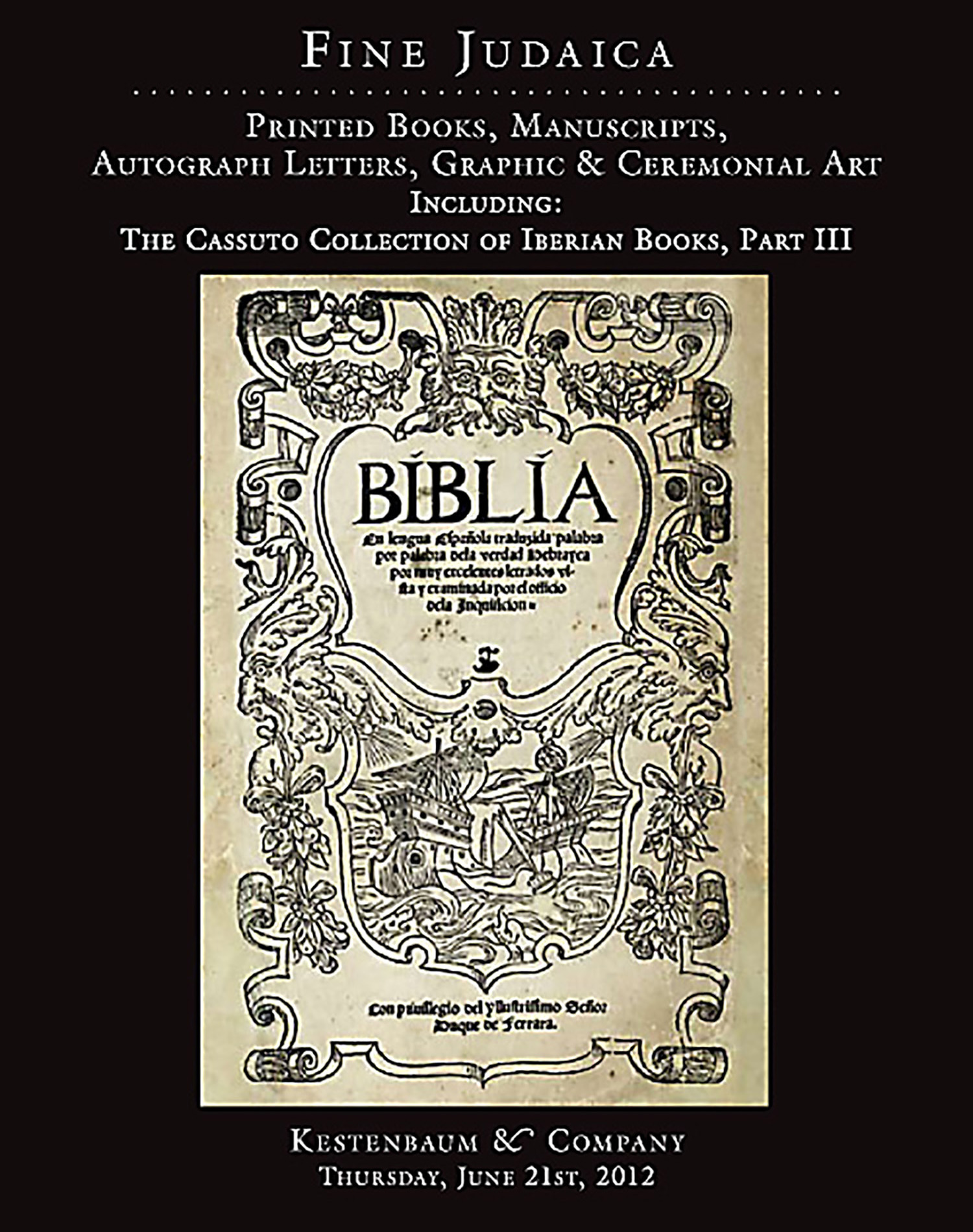Crémieux, Isaac Adolphe. Second Plaidoyer sur cette Question: le Juif français doit-il être soumis à prêter le serment more judaïco?

AUCTION 55 |
Thursday, June 21st,
2012 at 1:00
Fine Judaica: Printed Books, Manuscripts Autograph Letters, Graphic & Ceremonial Art
Lot 112
(FRENCH-JUDAICA).
Crémieux, Isaac Adolphe. Second Plaidoyer sur cette Question: le Juif français doit-il être soumis à prêter le serment more judaïco?
Nîmes: Gaude 1827
Est: $1,000 - $1,500
<<A landmark speech. Only two copies recorded in WorldCat.>>
The persistence in 19th-century France of the Jewry Oath (“De more judaico,”) obliging a Jew to take a special oath on the Torah before testifying in a secular court of law was the most visible sign of the incomplete fulfillment of the promised equality of all French citizens, enacted by the Legislative Assembly at the time of the Revolution.
Abolition in France of this vestige of the Middle Ages can be credited to the determination and eloquence of the Provençal Jewish lawyer Isaac Adolphe Crémieux (b. 1796). First, he succeeded in getting himself excused from taking the oath when admitted to the bar in his hometown of Nîmes in 1817. Next, in January 1827, he appealed on behalf of a fellow Jew of Nîmes, and on this occasion, too, he succeeded in getting the requirement set aside. That this had not settled the matter for good, however, became clear when another such situation arose almost immediately afterwards. At the hearing held in June 1827, Crémieux delivered the monumental speech published here, by order of the court, together with its judgment that the lower court had exceeded the limits of the law in requiring appellant to swear any special oath.
Even if this victory did not settle the matter once and for all--Crémieux had to keep fighting until 1846 before he achieved this--his exposition of the issues here constitutes one of the classic treatments of freedom of conscience and goes to the heart of modern France’s self-understanding as a secular state.
